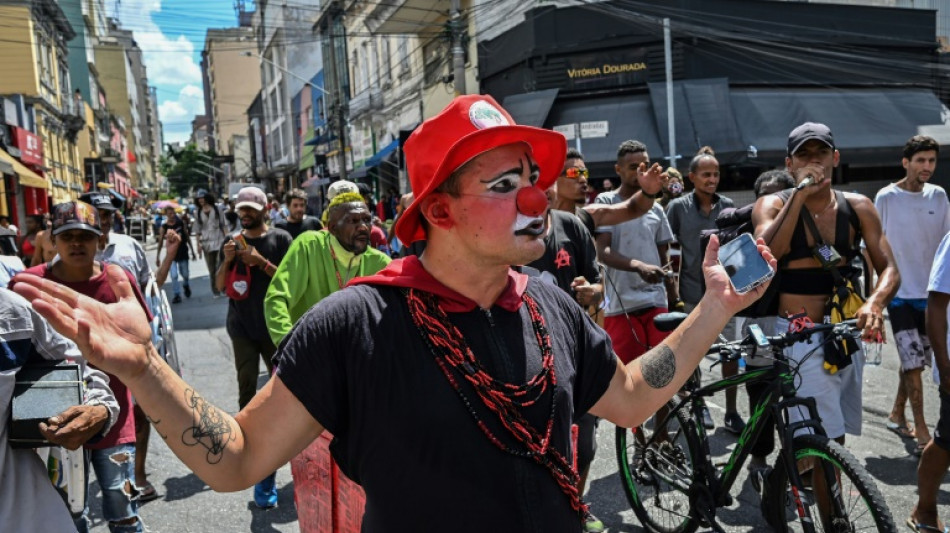
-
 Yamal stardust could give Barca edge on Inter Milan
Yamal stardust could give Barca edge on Inter Milan
-
Trump targets US 'sanctuary cities' in migrant crackdown

-
 Mexico agrees to send water to US after Trump threatens tariffs
Mexico agrees to send water to US after Trump threatens tariffs
-
Amazon launches first Starlink-rival internet satellites

-
 US lost seven multi-million-dollar drones in Yemen area since March
US lost seven multi-million-dollar drones in Yemen area since March
-
Bucks blow as Lillard suffers torn Achilles: team

-
 Putin orders three-day truce amid new US warnings
Putin orders three-day truce amid new US warnings
-
Real Madrid's Ancelotti agrees Brazil deal - reports

-
 ChatGPT adds shopping help, intensifying Google rivalry
ChatGPT adds shopping help, intensifying Google rivalry
-
Global stocks mixed amid trade hopes as markets await tech earnings

-
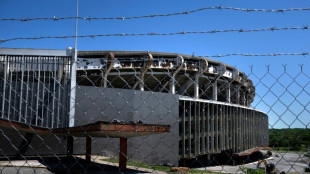 Commanders heading back to D.C. after inking $3.7 bln stadium deal
Commanders heading back to D.C. after inking $3.7 bln stadium deal
-
US warplane falls off aircraft carrier into Red Sea

-
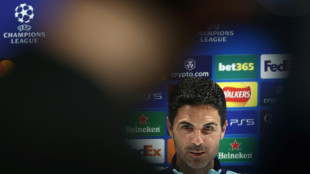 Feisty Arteta urges Arsenal fans to 'bring boots' to PSG Champions League clash
Feisty Arteta urges Arsenal fans to 'bring boots' to PSG Champions League clash
-
Bucks blow as Lillard suffers ruptured Achilles: reports

-
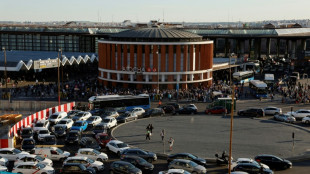 No power, no phone, no transport -- Spain in a panic
No power, no phone, no transport -- Spain in a panic
-
US warplane went overboard into Red Sea: Navy

-
 'Like a dream' as IPL's 14-year-old Suryavanshi becomes youngest to hit T20 ton
'Like a dream' as IPL's 14-year-old Suryavanshi becomes youngest to hit T20 ton
-
Luis Enrique says PSG have improved since October Arsenal loss
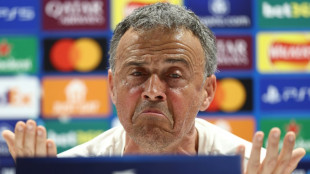
-
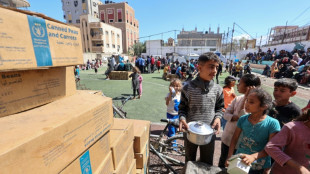 UN food, refugee agencies warn of huge cuts after funding losses
UN food, refugee agencies warn of huge cuts after funding losses
-
Trump trade war dominates BRICS meeting in Brazil

-
 Rashford expected to miss rest of Aston Villa season
Rashford expected to miss rest of Aston Villa season
-
IPL's 14-year-old Suryavanshi youngest to hit T20 ton as Rajasthan rule

-
 Halle Berry, Jeremy Strong to join Cannes film festival jury: organisers
Halle Berry, Jeremy Strong to join Cannes film festival jury: organisers
-
Klopp congratulates Liverpool on Premier League triumph
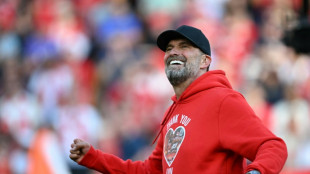
-
 Violence-weary Trinidadians vote in general election
Violence-weary Trinidadians vote in general election
-
Abuse scandal in focus in search for new pope

-
 Prince William and Kate mark wedding anniversary in Scotland
Prince William and Kate mark wedding anniversary in Scotland
-
Amazon set for launch of Starlink-rival satellites

-
 London mayor Sadiq Khan targets Olympic history for city
London mayor Sadiq Khan targets Olympic history for city
-
Stock markets diverge amid trade hopes, ahead of earnings

-
 Canada votes as Trump renews US takeover push
Canada votes as Trump renews US takeover push
-
Massive blackout hits all of Spain and Portugal
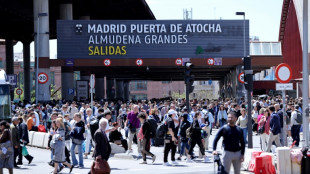
-
 Conclave starts May 7, cardinals say new pope must tackle abuse
Conclave starts May 7, cardinals say new pope must tackle abuse
-
BRICS ministers meet in Brazil over Trump trade policies

-
 Trump escalates immigration crackdown to mark 100 days
Trump escalates immigration crackdown to mark 100 days
-
Outkast, White Stripes, Cyndi Lauper among Rock Hall inductees

-
 Putin orders three-day truce in May but Ukraine asks 'Why wait?'
Putin orders three-day truce in May but Ukraine asks 'Why wait?'
-
Eubank Jr discharged from hospital following boxing grudge match

-
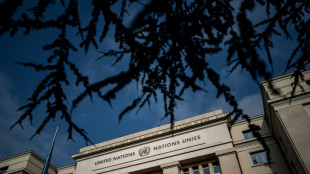 China deploys army of fake NGOs at UN to intimidate critics: media probe
China deploys army of fake NGOs at UN to intimidate critics: media probe
-
Empty shelves? US Treasury secretary not concerned 'at present'

-
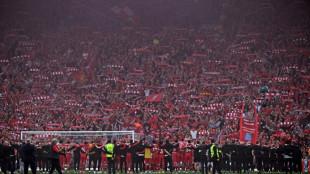 Slot told Liverpool they could win the league at season start: Konate
Slot told Liverpool they could win the league at season start: Konate
-
Spain brought to a halt by huge blackout
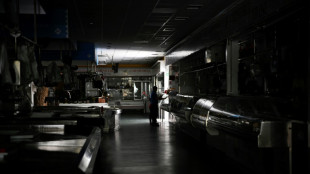
-
 Stock markets mostly higher amid trade talk hopes
Stock markets mostly higher amid trade talk hopes
-
Conclave starts May 7, with cardinals saying new pope must tackle abuse

-
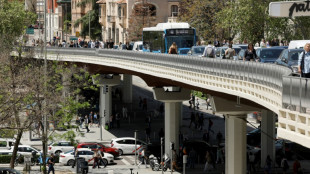 Massive blackout hits Spain and Portugal
Massive blackout hits Spain and Portugal
-
Ruediger 'must show respect to others' says Germany boss Voeller

-
 As Canada votes, Trump pushes US takeover plan
As Canada votes, Trump pushes US takeover plan
-
Ten on trial in Paris over 2016 gunpoint robbery of Kim Kardashian

-
 African players in Europe: Salah scores, takes selfies as Reds seal title
African players in Europe: Salah scores, takes selfies as Reds seal title
-
Bangladesh spinner Taijul's 5 wickets trigger Zimbabwe collapse in 2nd Test


'Crackland' clown seeks to bring hope to Brazil addicts
Every Thursday, Brazilian psychiatrist Flavio Falcone trades his white lab coat for a red clown nose and heads to a decidedly unfunny place: a squalid Sao Paulo neighborhood known as "Crackland."
Wearing a baggy red-and-black outfit with a floppy hat and make-up to match, the 43-year-old doctor dances a goofy routine through the sordid streets of the downtown neighborhood, which is known as Brazil's biggest open-air narcotics market.
"Good morning, Crackland!" he shouts to the strung-out addicts meandering through the trash and decaying buildings that line the district's streets, where authorities have tried in vain for years to restore law and order.
"Crackland is where people who have failed in the capitalist system seek refuge," says Falcone.
"And clowns represent hope in the face of failure: we laugh when they stumble, and people here can relate to that."
Falcone's goal is to build a relationship of trust with addicts, many of whom fear being forced into treatment facilities by the authorities.
It is a first step, he says, in helping them get off the street.
There are around 800 to 1,700 addicts in Crackland, 39 percent of whom have lived in or frequented the neighborhood for more than a decade, according to a study by the Federal University of Sao Paulo published last year.
The number was previously as high as 4,000, before a series of police operations dispersed the addict population.
But the operations also had the side-effect of dispersing Crackland, which went from a clearly delimited district to a hazier area covering much of the city center in this sprawling economic capital of 12 million people.
- Funky beats -
Falcone arrives in the neighborhood jamming to the beats of Brazilian funk music pouring from a sound system wheeled in by his volunteer assistants.
At first, most of the addicts ignore him.
But then a few curious onlookers gather and Falcone talks them into participating in a singing contest.
The first to take the mic is Peterson P.P. -- his stage name -- a 29-year-old homeless man who has been living in Crackland for three years.
He says his dream is to become a funk singer.
"It's almost like being on stage," he beams.
As he sings, another man lights a metal pipe and smokes a crack rock, for an intense but fleeting high that costs around 20 reais ($3.85).
The idea of the singing contest, says Falcone, is to "reawaken a life force" in participants, in order to start steering them toward a treatment program.
It is a three-step process, he says.
"First, we help them get housing. After that, jobs" -- often as cleaners, garment workers or in municipal work-placement programs.
"Then and only then, we help them get treatment for their addictions," he says.
The project, which he started around 10 years ago, has helped dozens of people overcome addiction, Falcone says.
He started the project with government funding, but now relies on corporate donations to keep it going.
One beneficiary, Vanilson Santos Conceicao, says the program helped him find a roof over his head and begin rebuilding his life.
"I suffered a lot on the street. I took a lot of drugs. But I've been clean for three years now," says Conceicao, 35, who now helps prepare free meals for addicts.
- 'Pulling in different directions' -
The clown show comes to an abrupt halt with every police raid.
Charitable organizations that work in the neighborhood accuse the police of brutal tactics.
Local residents and businesses meanwhile complain the district is a security nightmare.
The administration of newly installed Sao Paulo Governor Tarcisio de Freitas has just launched a Crackland action plan with the mayor's office -- the latest in a long line of efforts to address the area's problems.
Officials admit the government has struggled to organize effective policies for the zone.
"Charitable organizations are more present than the state in Crackland right now, and we're all pulling in different directions," says Deputy Governor Felicio Ramuth.
Ramuth, who is leading the administration's initiative, says it includes "hiring specialists to work on-site" and "more treatment options, including self-help groups."
Authorities also plan to install 500 security cameras and offer 1,000 spots in treatment facilities.
Forced hospitalization will be a "last resort," Ramuth says.
P.M.Smith--AMWN